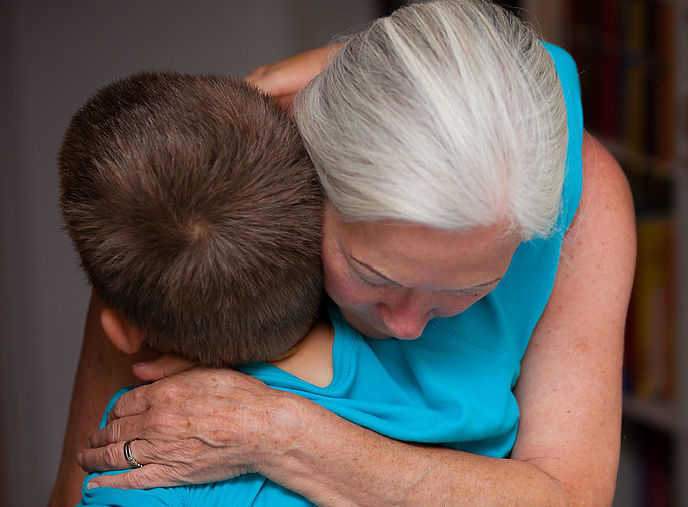 By Sheilah M. Gauch, M.Ed, LICSW, Principal, Dearborn Academy
By Sheilah M. Gauch, M.Ed, LICSW, Principal, Dearborn Academy
The task of caring for a child with significant mental health needs is truly heroes’ work – and can be incredibly stressful and challenging for any caregiver. By the time caregivers reach a therapeutic day school with their children, they have been walking a long, often challenging and complicated road to get their children the right support.
This can be a very lonely journey and one where caregivers are asked to navigate unfamiliar new systems. These new systems, including mental health and special education, come with new languages to learn, new people to meet and new ways to navigate through each one. We ask caregivers to learn these systems at the same time they are attempting to care for their child who is in intense pain and is suffering.
What is unique for caregivers who have children with mental health needs is that they must do all of this, while also negotiating the intensity of mental health stigma. We often talk about how “it takes a village to raise a child.” Caregivers with children with mental health needs often find their village isn’t sure how to help. The caregiver may also feel intense shame around asking the village for support.
When their children are struggling with mental health issues, caregivers may not share this with friends and family. There is often a worry that the caregiver will be blamed – that their ability to caretake is the reason the child is struggling.
Even if they do share, those family and friends may feel paralyzed to help. Often, mental health is seen as a very personal matter and people aren’t sure how to help. Unlike when a child has a physical illness, caregivers of children with mental health needs rarely have casseroles delivered or people checking on them regularly.
Significance and Impact
The significance and the impact of this type of caregiving cannot be underestimated. The Wall Street Journal published an article in February 2019 titled “For Parents of Ill Children, a Growing Recognition of PTSD.” The first line reads, “Post-traumatic stress disorder in combat soldiers is receiving greater attention and wider societal recognition. Now doctors and researchers are trying to do the same for a group that has similar symptoms: parents of children with life-threatening medical conditions.”
I would contend this is exactly what our caregivers who are supporting children with mental health needs are experiencing. I would also take it one step further and say that these caregivers are stuck in a perpetual state of this complex anxiety. They are experiencing an ongoing, sustained acute stressor as they desperately attempt to heal their children.
More often than not, there is no true linear path for their children to regain health. In mental health, there may not always be exact treatment – no magic medicine to ensure an immediate fix. These caregivers are forced into a cycle of moving from specialist to specialist, attempting to find the right medication, the right provider and the right treatment plan so that their child may find some relief.
This year at Dearborn Academy, I helped to create a presentation for staff orientation teaching them the basics of the neuroscience of anxiety – specifically, what is happening in the brain when someone is anxious. We explained how anxiety impacts not only our students but our caregivers – and showed several powerful videos of the impact of stress on a family system when a child has any type of illness, particularly mental health illnesses. One video, in particular, was very moving for staff to see. It was created for parents with physically ill children, but, I believe, highlights the stress and agony of having a child with mental illness as well.
Support Caregivers
If we understand that our caregivers are experiencing trauma, we become clear about the immediate need to support them. If we aren’t addressing the caregiver’s needs, we are not addressing the children’s needs. These children desperately need their caregiving heroes to stay in the fight to help them. It is therefore critical for those of us in schools to ensure that we are providing these caregivers with the empathy, positive affirmation and tools that they need to keep themselves healthy.
We must support caregivers in making time for themselves and also help them to navigate supports for themselves, not just for their children. Burnout and compassion fatigue are a very real hazard for this group. In order to help their children, we must slow down and take the opportunity to address the needs of the caregivers.
There is a wonderful quote I heard recently, from the teacher of the year in Virginia, Michelle Cotrell-Williams. She said, “I did not know how much a person could love somebody else until I met my daughter. And I realized that all my students were someone else’s world as well. And you as a parent are sending your best to me.”
As school professionals, we must take seriously the gift of their children caregivers share with us daily. We also must take time to truly see the amazing caregivers who send us their children. They are the true heroes who have fought tirelessly to support their children. We must value the enormous care and effort each caregiver uses as they help their child in navigating through the challenging world of special education, mental illness and into the larger world that awaits them.
In addition to her role at Dearborn Academy, Sheilah Gauch is chairwoman of her local Special Education Parents Advisory Council, founder of Mass Coalition for PANS/PANDAS Legislation and the proud mother of two school-aged children.
